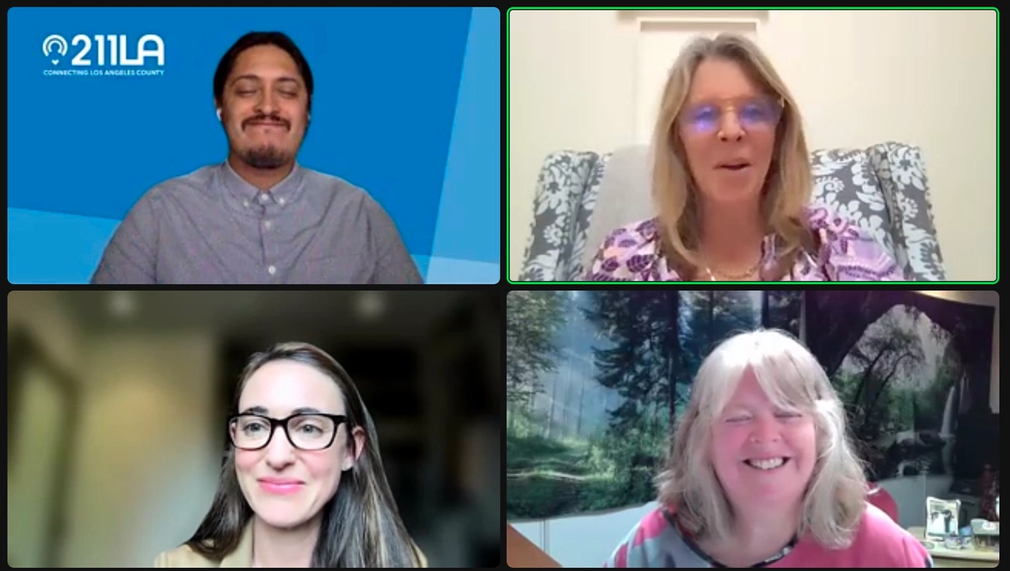Create LA's Definitive Child Welfare Hub
Los Angeles is full of lawyers, social workers, doctors, educators, program managers, mental health providers, researchers, and more at organizations large and small dedicated to supporting vulnerable youth in our community. Foster youth and unaccompanied minors are among those most in need of these support services. Yet service providers lack an efficient way to connect, collaborate, and share resources and information across organizations. We are building the definitive hub to make this work easier, more efficient, and more effective.

What is the primary issue area that your application will impact?
Support for Foster and Systems-Impacted Youth
In which areas of Los Angeles will you be directly working?
County of Los Angeles
In what stage of innovation is this project, program, or initiative?
Pilot or new project, program, or initiative
What is your understanding of the issue that you are seeking to address?
People supporting vulnerable children and families lack solid infrastructure to support trans-organizational work. The work is already happening through multiple collaboratives across LA County organized by client type or service type (from our membership: foster youth, unaccompanied minors; child abuse prevention, anti-violence). Overnight when the COVID-19 pandemic began, service providers pivoted to email and Zoom. PDFs of events are shared in email newsletters and Dropbox folders, or dropped into Zoom chats; requests for referrals get blasted to mass email lists (and into spam). As we adjust to our new normal, we need a better way forward incorporating the best of what we've learned the last two years. We won't go back to attending all meetings in person--but nor can we do our best work with what began as emergency measures. The Coalition Platform is that way forward: a thoughtful, secure, organized hub to find the resources we need, and connect with the people who provide them.
Describe the project, program, or initiative this grant will support to address the issue.
This funding will support two critical functions: human resources to build and support our membership, and technological resources to keep our work going and expand it. It's people who make this work possible; relationship-building is a critical part of our work. Additional funding will enable us to perform outreach and support transition of members into the Coalition Platform. It will also enable us to research and build out our Resources section as guided by our members to consolidate available resources in the community in one place in an organized, accessible format. And it will provide space to hold additional Community Zooms to discuss challenges we face collectively and learn from each other. On the technological side, we have ongoing costs for the Coalition Platform, which will grow as our membership grows. We seek to expand from our mobile-optimized website to a true mobile app that will be even more accessible to our members who often use their phones for the type of quick exchanges we can facilitate. Finally, as our members identify problems technology could solve (like keeping track of who is taking referrals in which service area, as one example that has already been identified), we need funds to develop technological solutions that don’t currently exist. In short, this grant will give us the support we need to carry through the goals we have already identified and which are in process in early stages, but which need funding to see them through.
Describe how Los Angeles County will be different if your work is successful.
Many of the resources our community needs already exist; the infrastructure to utilize them well doesn't. We can fix this. The Coalition Platform decentralizes access to information, empowering everyone who works to support youth. We provide the infrastructure for people to reorganize existing resources themselves--finding things quickly, sharing efficiently, and wasting less time on fruitless searches. As our membership grows, we will be able to identify where there are information gaps--or true gaps in service. We can shine a light where services or funding are critically needed. And we can investigate solutions with our university-affiliated members, building deeper relationships between academia and our community organizations. This will make research increasingly relevant (via community input) and accessible (via academic sensitivity to community needs). In short, we will be the hub not only for service providers, but for thinking about child welfare from the 10,000 foot view.
What evidence do you have that this project, program, or initiative is or will be successful, and how will you define and measure success?
We are in the early stages of this project, having launched in January 2022. We will define success by measuring the number of members using the Coalition Platform, the number of child welfare organizations represented by members on the Platform, and the level of activity and engagement in discussion spaces facilitated by staff—knowing that each of the service providers benefitting from the Coalition Platform will reproduce that effect tenfold on those in need of their direct services. We conduct regular surveys of our members consisting of quantitative and qualitative feedback, and will hold high-level meetings with key stakeholders among the most active users of the Platform to engage in deeper feedback loops. With more staff capacity, we plan to develop analytic reports on activity metrics, and to better quantify the number of connections made within the Platform by following up with individual members.
Approximately how many people will be impacted by this project, program, or initiative?
Direct Impact: 350
Indirect Impact: 3,500